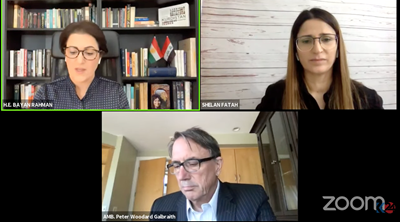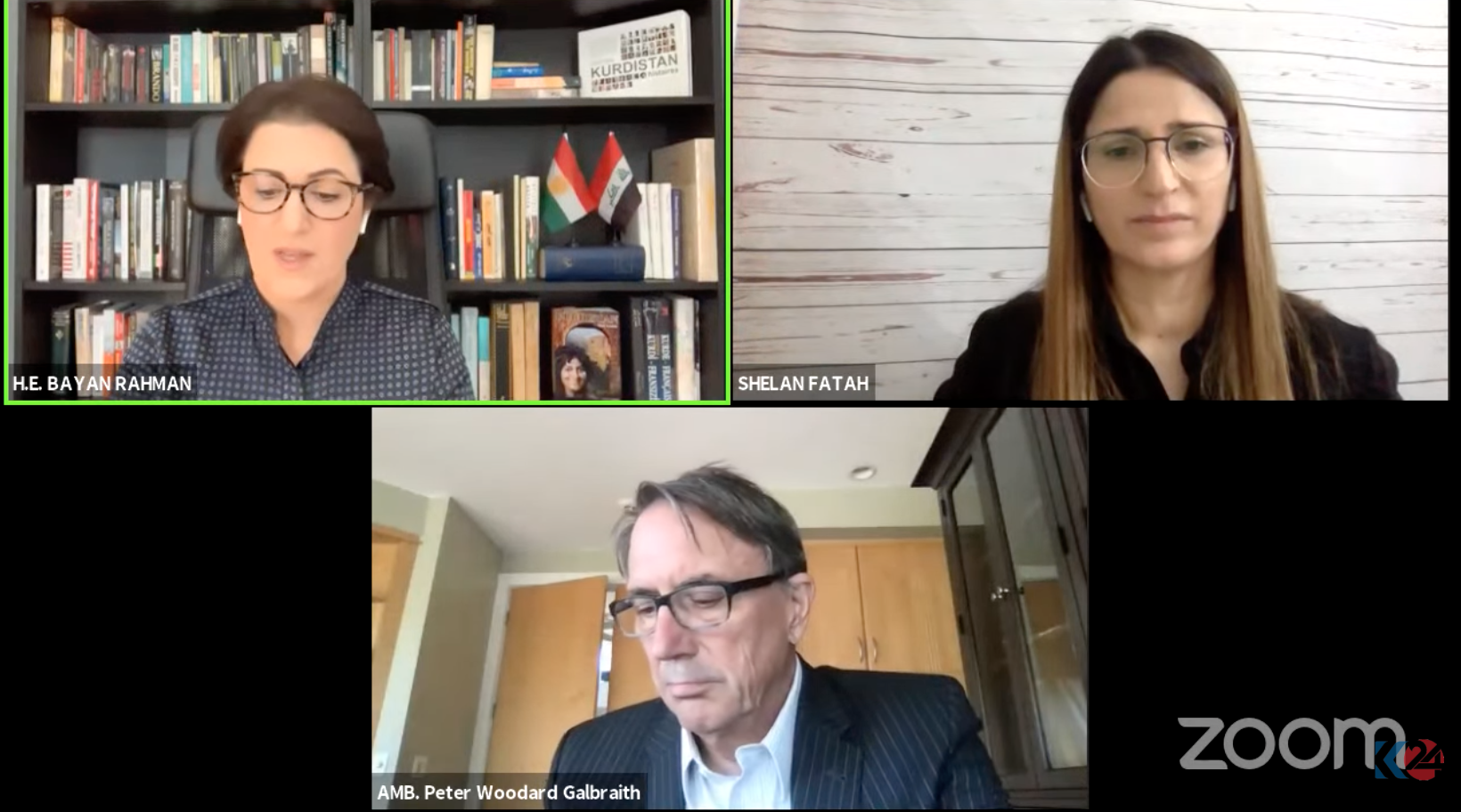Kurdistan Regional Government
Representation in the United States
Representation in the United States
Wednesday 17 March 2021
KRG US Representation hosts online commemoration of Halabja genocide
Washington, DC, USA (us.gov.krd) – The Kurdistan Regional Government Representation in the United States hosted a virtual commemoration of the genocide in Halabja in 1988, which killed 5,000 people and wounded 7,000 to 10,000.
The event, which marked the 33rd anniversary of the genocide caused by chemical weapons against the civilian population of the city, was broadcast live on Kurdistan 24 TV and social media and took place on Tuesday, March 16.
The first speaker was Shelan Fattah, who survived the genocide as a child but lost her father and saw neighbors and friends killed and wounded. She described the horrors she and her siblings endured during the massacre and the trauma that still haunts them. She called for more assistance to the people and the city of Halabja.
Senator Chris Van Hollen delivered a recorded message in which he described how he and Ambassador Peter Galbraith, who were staff in the US Congress at the time, journeyed to Kurdistan and saw for themselves the genocide that was taking place. They reported their findings to the US Senate, which passed The Prevention of Genocide Act of 1988, a bill to punish Iraq for chemical weapons attacks in Halabja. Senator Van Hollen said, ‘Today compels us to not only remembering the past but working in the present.’
Ambassador Galbraith said that through this bill, the United States Congress became the first parliament to recognize the Halabja and Anfal genocides. He said, ‘This is a day to remember. What always say about genocide is ‘never again’ and the way we keep that vow by remembering.’ He also noted the critical role of the international media in 1991, who broadcast and wrote about the mass exodus of Kurds to the mountainous border of Turkey for fear that chemical weapons would be used against them by the Iraqi regime.
Linkage between Baathists and ISIS
Iraq’s Ambassador to the United States, Fareed Yasseen, said the international community did little to help the Kurds at the time, and it fell to NGOs and activists to put a spotlight on what happened. He said the images of Halabja drove him to work on human rights issues, such as documenting the disappearances of the victims of genocide during the Baathist dictatorship.
He added that there is a direct linkage from the Baathists to ISIS, who committed genocide in 2014 against the Yezidis, Christians, and many others.
‘We need a more moral attitude by international actors,’ Ambassador Yasseen said. ‘This is why holding events such as this one is important, and I commend the KRG Representation for holding this commemoration.’
Kurdistan Region as a land of peaceful coexistence
Joey Hood, Acting Assistant Secretary of State for Near Eastern Affairs, said, ‘The horrors of that day in Halabja are burned into the very core of America’s policy toward the Middle East.’ He said, ‘The lessons of Halabja drive our commitment to see justice and accountability for the crimes of Saddam’s fellow Baathist in Syria.’
Mr. Hood also noted the successful visit of Pope Francis, where he celebrated mass at a stadium with 10,000 people.
‘I really have to applaud the Kurdistan Regional Government and all the people of Iraq and especially the Iraqi Kurdistan Region for opening their hearts and their doors to not only Pope Francis but the religious and ethnic minorities from across Iraq and Syria who are displaced by ISIS’ genocide,’ he said. ‘The Pope’s visit reaffirmed the Iraqi Kurdistan Region as a land of peaceful coexistence—and not just religious tolerance, but religious acceptance.’
Professor Hannibal Travis, a professor of law at Florida International University, said there was no standing international criminal court in 1988, and the task of preventing genocide fell to the United Nations Security Council and individual states, many of which did not recognize the Kurdish genocide until years later. He said there are different interpretations of the Genocide Convention, which has contributed to the lack of action on genocides around the world.


